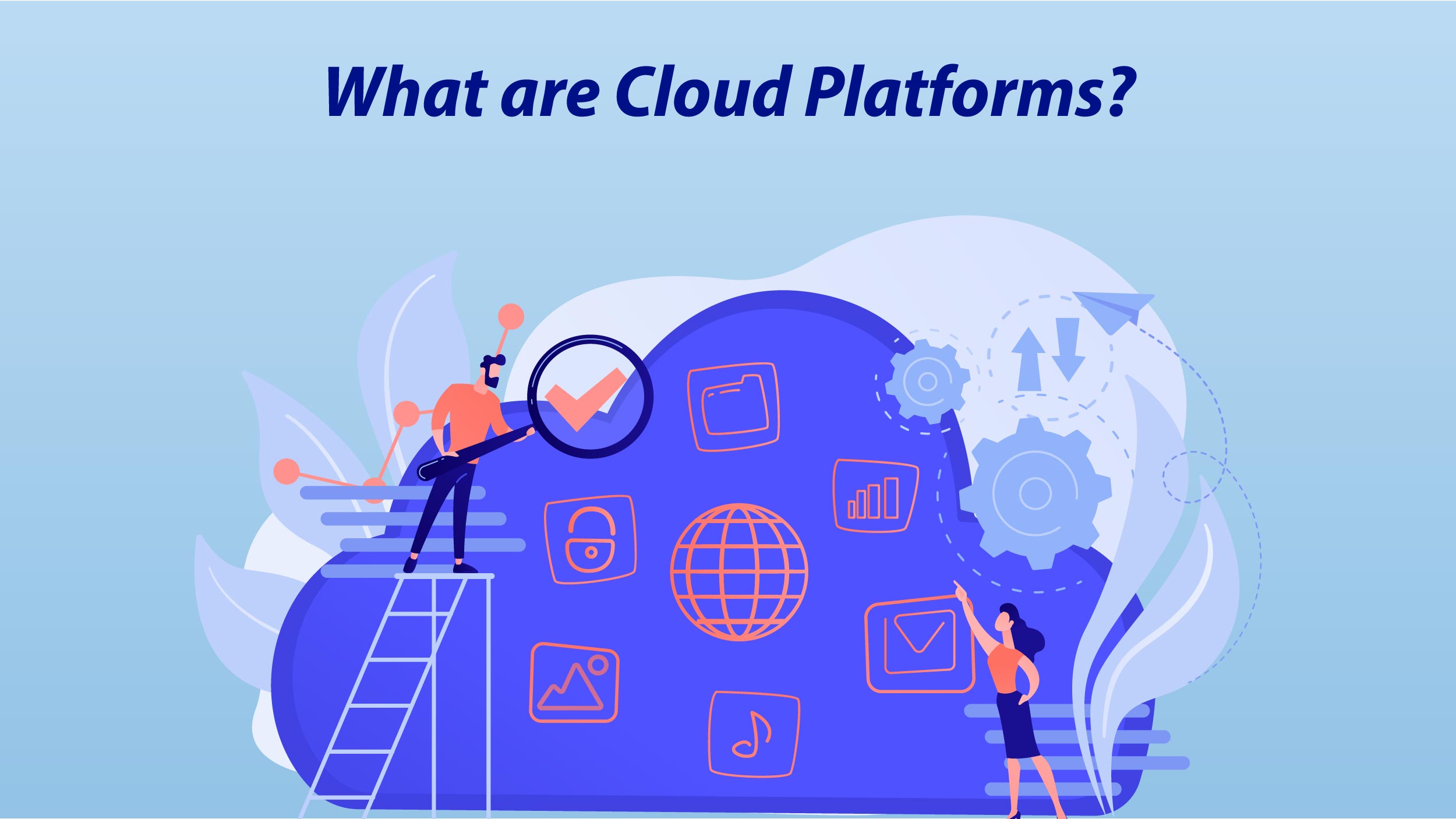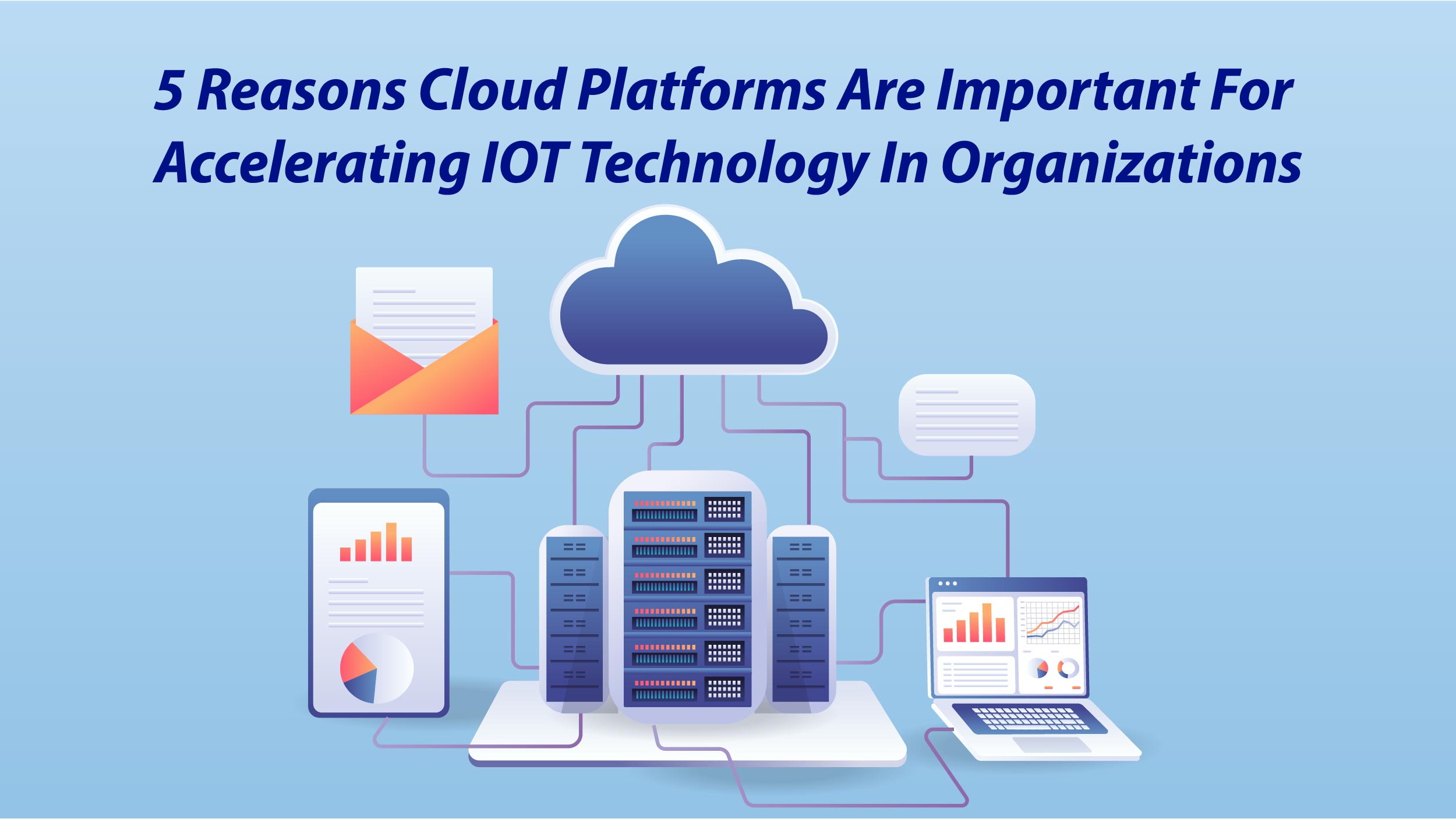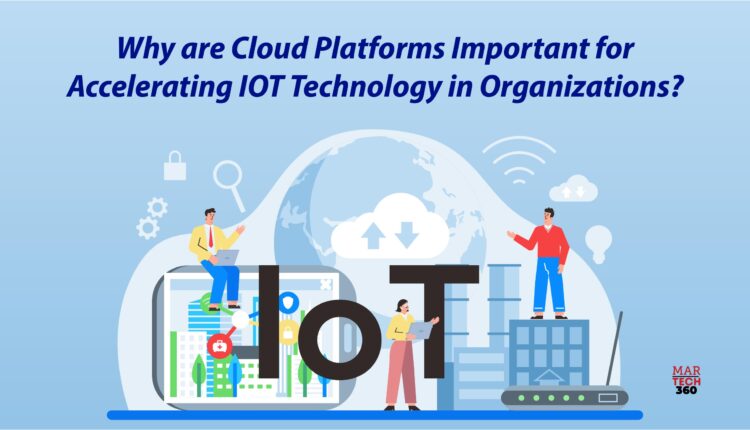In the ever-evolving landscape of technology, the Internet of Things (IoT) has emerged as a transformative force, connecting billions of devices and revolutionizing the way organizations operate. However, harnessing the full potential of IoT requires robust infrastructure, seamless connectivity, and powerful data processing capabilities. This is where cloud platforms come into play. In this blog, we delve into the importance of cloud platforms for accelerating IoT technology in organizations.
What are Cloud Platforms?
 Cloud platforms are the hardware and operating systems of servers housed in data centers connected to the Internet. They offer a variety of services that may be accessed remotely and in large quantities, such as computing power, storage, databases, analytics, networking, software, and intelligence. Cloud platforms facilitate the rental and utilization of these services by companies, eliminating the need for them to establish and manage their own computing infrastructure or data centers. A few instances of cloud platforms are IBM Bluemix, Microsoft Azure, Google Cloud Platform, and Amazon Web Services (AWS).
Cloud platforms are the hardware and operating systems of servers housed in data centers connected to the Internet. They offer a variety of services that may be accessed remotely and in large quantities, such as computing power, storage, databases, analytics, networking, software, and intelligence. Cloud platforms facilitate the rental and utilization of these services by companies, eliminating the need for them to establish and manage their own computing infrastructure or data centers. A few instances of cloud platforms are IBM Bluemix, Microsoft Azure, Google Cloud Platform, and Amazon Web Services (AWS).
Cloud platforms are essential for boosting IoT adoption in businesses. Over half of businesses will employ industrial cloud platforms to expedite commercial activities by 2027. Organizations may effectively manage and analyze the vast amounts of data generated by Internet of Things devices by utilizing cloud infrastructure. Because cloud platforms are flexible, scalable, and affordable, businesses can scale their Internet of Things deployments according to their needs and only pay for the resources they really utilize.
It also makes it easier to integrate IoT apps and devices with other enterprise services and systems. In order to facilitate smooth connection and data sharing between devices, cloud platforms, and other applications, they offer developers the tools and APIs they need to create and implement Internet of Things solutions. The total efficacy and efficiency of IoT deployments in enterprises are improved by this connection.
Also Read: The Essential Guide to Enhancing Your Digital Customer Experience (DCX)
5 Reasons Cloud Platforms Are Important For Accelerating IOT Technology In Organizations
 Now that we have a fair understanding of what cloud platforms are, let’s have a look at why these are crucial for organizations.
Now that we have a fair understanding of what cloud platforms are, let’s have a look at why these are crucial for organizations.
1. Scalability
One of the most significant benefits of hosting your IoT system in the cloud is its ease of scalability. In a cloud-based Internet of Things system, adding new resources usually entails leasing another virtual server or more cloud space, both of which have the added benefit of being easily implemented. Cloud leaders are increasing cloud usage (41.4%), planning to migrate from legacy software to cloud-based tools (33.4%), and migrating on-premises workloads (32.8%) due to the current macroeconomic climate.
Furthermore, IoT cloud platform services provide greater flexibility if you want to limit your storage requirements or reduce the number of IoT-enabled devices.
2. Cost-Effective
In the specific instance of an in-house Internet of Things system, large upfront investments and increased implementation risk can be discouraging. In addition, there is the ongoing cost of hardware maintenance and IT personnel. Issues appear to be improving from the cloud’s perspective. Significantly lower initial costs and a flexible pricing scheme based on actual usage encourage IoT-based businesses to migrate to the cloud.
3. Data Accessibility
Your data can be accessed from almost anywhere in the world if it is stored and processed in a cloud server, which also means it is not restricted by any infrastructure or networking constraints. When it comes to IoT projects involving real-time monitoring and management of connected devices, mobility is especially important.
While data stored on-premises servers can only be acted upon within the company’s walls, an advanced Internet of Things cloud platform will provide you with the tools to provision, manage, and update your devices and sensors, as well as process the acquired data remotely and in real time.
4. Time-to-market Priority
IoT cloud solutions typically require less time and effort to implement and have a lower overall cost, but this comes at the expense of platform customization. While it is true that Internet of Things systems installed on-premises can be more easily tailored to the project’s requirements, they also necessitate the time-consuming deployment of data management and analysis capabilities, as well as upgrades to the company’s existing network structure due to increased data traffic. Overall, when time to market is a critical business factor, cloud-based IoT infrastructure proves to be more profitable.
5. Security
Security concerns, which have been a major concern for the IoT world since its inception, can be difficult to address here. It all comes down to responsibility in the cloud platform vs. on-premise IoT infrastructure debate. In the case of on-site servers, it is in the hands of the company, and the data’s safety is solely dependent on the organization’s security practices.
As a result, it is understandable that some organizations may be hesitant to hand over control of their sensitive data to an outside party. Nonetheless, both service providers and clients agree that storing and processing your Internet of Things data in the cloud is more secure than keeping it on-premises.
In a Nutshell
Cloud platforms are now essential for businesses trying to take advantage of the revolutionary potential of IoT technology. Cloud platforms facilitate rapid IoT projects and innovation by offering scalable infrastructure, easy communication, and robust data processing capabilities.
They provide the cost-effectiveness, scalability, and flexibility needed to manage the enormous volumes of data produced by IoT devices and facilitate easy interaction with other enterprise systems. Organizations can drive digital transformation, realize the full potential of IoT, and gain a competitive edge in the ever-changing technology landscape of today by adopting cloud platforms.


Comments are closed.